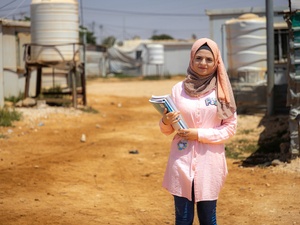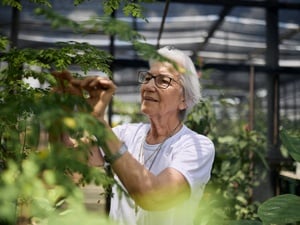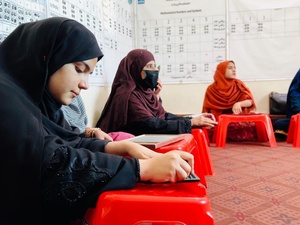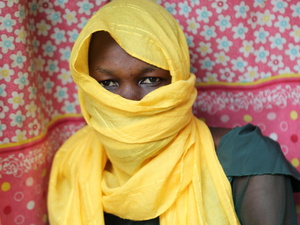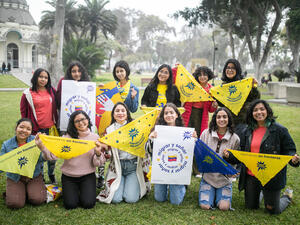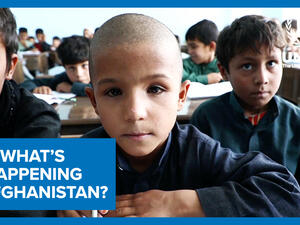Refugee women must receive sanitary supplies on regular basis - UNHCR
Refugee women must receive sanitary supplies on regular basis - UNHCR
Emergency supplies bound for northern Afghanistan arrive in the Uzbek river port of Termez.
GENEVA, Oct. 22 (UNHCR) - The U.N. refugee agency has instructed its offices worldwide to insure that sanitary supplies are distributed to refugee women along with other domestic and household goods.
"Women cannot work, got to school, or live free of embarrassment without these supplies," Deputy High Commissioner Mary Ann Wyrsch wrote in a memorandum issued earlier this month. "Inadequate provision of sanitary materials not only infringes on the dignity and rights of girls and women, but in some circumstances it undermines UNHCR's mandate by creating obstacles to programmes that aim to further involve women and can place their health at risk."
The memorandum ordered the distribution of such materials after a recent survey showed that few of the refugee agency's field offices had complied with a 1996 directive ordering them to include provisions for sanitary supplies in their regular budgets.
"This survey found that very few offices have been supplying these essential materials to refugee women and girls," Wyrsch wrote all heads of UNHCR offices, bureaus and programme managers. "The denial of this assistance has a detrimental effect on women and girls in all spheres of their lives from health, education and community involvement to employment."
"Sanitary supplies must be seen as a critical element of the effective protection of refugee women and as such must immediately be included in each office's budget for domestic and household goods," Wyrsch added.
According to the survey, completed by 52 offices around the world, the quantity, quality, method and frequency of distribution of sanitary materials to refugee women and girls varies greatly. In many offices, the provision of supplies continued to be irregular or inappropriate, preventing girls from attending schools or limiting the participation of women in income-generating activities.
"The survey results clearly demonstrated the prevalence of health problems among refugee women who do not have access to sanitary materials," the memorandum said. Several offices surveyed said they "tie distribution of sanitary materials to attendance at reproductive health sessions and hygiene workshops."
Certain methods of distributing the hygiene materials were also criticized by the survey. In Kakuma camp, Kenya, for example, the material was sometimes distributed to girls in school in front of male classmates. Girls said they felt humiliated when required to collect sanitary materials in class, sometimes even from male teachers, adding to their discomfort.
The survey noted that there was some improvement in refugee programmes where donors funded projects specifically for the production and distribution of sanitary materials. But it said "UNHCR was still far away from the goal of having these supplies worked into regular budgeting and no longer considered as a 'special need,' separate from food and other basic goods."
Ebou Camara, Deputy Director in the Africa Bureau, said his office could not immediately project the overall cost of giving these supplies to refugee women and girls. "The expenditures will vary from [country] programme to programme and will be dictated by the availability and quality of materials to be used," he said.
The African continent hosts 30 percent of the global refugee population of 21 million people, second only to Asia, which has 44 percent of the world's refugees. Overall, women and girls make up almost 50 percent of the world's refugee population.


